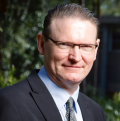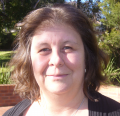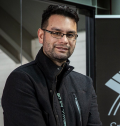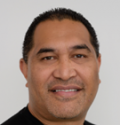« Back to NZCCP Past Conferences
Apr. 5 — 6, 2019 8:00:00 AM - 5:00:00 PM

The Australian Clinical Psychology Association and
New Zealand College of Clinical Psychologists
in partnership present:
Friday 5 & Saturday 6 April 2019
Rydges World Square
389 Pitt Street
Sydney, NSW
Keynote Presenters:
Prof. Richard Bryant, University of New South Wales (UNSW)
&
Dr Bruno Cayoun, MiBT Institute
Day one of the annual conference will offer a full programme of thought-provoking
presentations reflecting the conference theme of being a contemporary clinician,
combining ancient wisdoms, cultural traditions, and modern advances. We are also
honoured to offer two culturally-rich presentations on maintaining the relevance of
indigenous wisdom in modern clinical practice.
Day two will offer an advanced workshop on Mindfulness Based CBT (MiCBT)
presented by Dr Bruno Cayoun and Ms Alice Shires. This workshop will offer
delegates a masterclass opportunity to extend their knowledge of integrating
mindfulness and CBT when working with trauma.
|
7.30am – 8.30am |
Registration |
|
|
8.30am – 9.00am |
Conference Welcome by ACPA President (5mins) Welcome to Country and Cultural Opening Ceremony |
|
|
9.00am – 10.30am |
Keynote "Technological and research innovations advancing the clinical treatment of trauma" Prof Richard Bryant, University of New South Wales |
|
|
10.30am – 11.00 am |
Morning Tea |
|
|
11.00am – 12.00pm |
"MiCBT: The growing evidence for an ancient wisdom central to contemporary mental health treatment” Dr Bruno Cayoun, MiCBT Institute |
|
|
12.00pm – 1.00pm |
“A forecast for clinical psychology and future-proofing the profession” Co-presented by Brin Grenyer, Senior Professor of Psychology, UOW, and Malcolm Stewart, President, NZCCP |
|
|
1.00pm – 2.00pm |
LUNCH |
|
|
2.00pm – 3.00pm |
“Hippocrates was right: what clinical psychologists should know about innovations in nutritional therapies” Prof Julia Rucklidge, University of Canterbury |
|
|
3.00pm – 4.00pm |
"E-Mental Health: applied technology increases access to mental health treatments and resources" Ms Julia Reynolds, Australia National University |
“Utilising Cultural Wisdoms for Thriving in the Modern World” Combined presentation by Australian and New Zealand indigenous representative panel
|
|
4.00pm – 4.10pm |
Comfort Break (10min stretch break) |
|
|
4.10pm – 5.00pm |
"Sharing Wisdom Across the Tasman: Reflections on the direction of culture in psychology" Tanja Hirvonen (AUS), Luke Rowe (NZCCP) |
|
|
5.00pm – 5.30pm
|
Conference Close and Closing Ceremony AU / NZ |
|
One-day advanced workshop by Dr Bruno Cayoun and co-presented by Ms Alice Shires: “Addressing Trauma with Mindfulness-integrated CBT: Principles and Practice”
Morning Tea, lunch, and Afternoon Tea provided
Meet the Presenters
KEYNOTE PRESENTERS
 Prof. Richard Bryant is Scientia Professor of Psychology at the University of New South Wales (UNSW) and Director of the UNSW Traumatic Stress Clinic, based at UNSE and Westmead Institute for Medical Research. He is a world-leading authority in early psychological responses to trauma. He has identified the core biological and psychological factors that occur immediately after trauma and that influence the long-term trajectories of mental health. His diagnostic and treatment protocols have been translated into over 15 languages, and are the gold standard protocols used in most countries following traumatic events. Bryant is the most published and cited clinical psychologist in Australia and he consults widely with international agencies on mental health. He and wrote the major texts on early psychological response to trauma that have set the international research agenda in this field.
Prof. Richard Bryant is Scientia Professor of Psychology at the University of New South Wales (UNSW) and Director of the UNSW Traumatic Stress Clinic, based at UNSE and Westmead Institute for Medical Research. He is a world-leading authority in early psychological responses to trauma. He has identified the core biological and psychological factors that occur immediately after trauma and that influence the long-term trajectories of mental health. His diagnostic and treatment protocols have been translated into over 15 languages, and are the gold standard protocols used in most countries following traumatic events. Bryant is the most published and cited clinical psychologist in Australia and he consults widely with international agencies on mental health. He and wrote the major texts on early psychological response to trauma that have set the international research agenda in this field.
Research Areas: Post-traumatic stress disorder and anxiety: assessment, mechanisms, and treatment. Refugee and indigenous research. Neuroimaging and fMRI. Experimental and clinical investigation of emotional memory, trauma, and dissociation. Clinical and experimental hypnosis. Autobiographical memory in clinical disorders. Web-based interventions.
 Dr Bruno Cayoun is a clinical and research psychologist and principal developer of Mindfulness-integrated Cognitive Behaviour Therapy (MiCBT). He is the founder and Director of the MiCBT Institute, a leading provider of MiCBT training and professional development to mental health services and professional associations internationally since 2003. He keeps a private practice in Hobart, Australia, undertakes mindfulness research at the MiCBT Institute, and cooperates on mindfulness-based research with various universities. He has practised mindfulness meditation in the Burmese Vipassana tradition of Ledi Sayadaw, U Ba Khin and S. N. Goenka and undergone intensive training in France, Nepal, India, and Australia since 1989. He is the author of Mindfulness-integrated CBT: Principles and Practice (Wiley, 2011) and Mindfulness-integrated CBT for Well-Being and Personal Growth (Wiley, 2015), and co-author of a new book, The Clinical Handbook of Mindfulness-integrated CBT: A Step-by-Step Guide for Therapists (Wiley, 2018). See www.mindfulness.net.au for further information.
Dr Bruno Cayoun is a clinical and research psychologist and principal developer of Mindfulness-integrated Cognitive Behaviour Therapy (MiCBT). He is the founder and Director of the MiCBT Institute, a leading provider of MiCBT training and professional development to mental health services and professional associations internationally since 2003. He keeps a private practice in Hobart, Australia, undertakes mindfulness research at the MiCBT Institute, and cooperates on mindfulness-based research with various universities. He has practised mindfulness meditation in the Burmese Vipassana tradition of Ledi Sayadaw, U Ba Khin and S. N. Goenka and undergone intensive training in France, Nepal, India, and Australia since 1989. He is the author of Mindfulness-integrated CBT: Principles and Practice (Wiley, 2011) and Mindfulness-integrated CBT for Well-Being and Personal Growth (Wiley, 2015), and co-author of a new book, The Clinical Handbook of Mindfulness-integrated CBT: A Step-by-Step Guide for Therapists (Wiley, 2018). See www.mindfulness.net.au for further information.
PRESENTERS
 Prof Brin Grenyer (www.researchgate.net/profile/Brin_Grenyer) is a practicing clinical psychologist and Senior Professor of Psychology at the University of Wollongong and Director of the Project Air Strategy for Personality Disorders (www.projectairstrategy.org). For nearly 10 years he was Foundation Chair of the Psychology Board of Australia overseeing the registration and conduct of all 35,000 psychologists in Australia (www.psychologyboard.gov.au). He was a member of the National Health and Medical Research Council (NHMRC) Borderline Personality Disorder Guideline Development Committee, the Royal Australian and New Zealand College of Psychiatrists (RANZCP) Advisory Group for a Consumer Guide on Borderline Personality Disorder, the SANE Australia Advisory Committee for the National Mental Health Commission on the needs of Australians living with personality disorders, a content author on RACGP (Royal Australian College of General Practitioners) GP learning package "Borderline personality disorder: diagnosis and management in general practice," and a Consultant for the Psychodynamic Diagnostic Manual (PDM-2). He has been awarded over 40 grants totalling more than 18 million in funding, published over 150 journal articles, chapters, books and monographs, supervised over 25 PhD candidates to graduation, and his team have received numerous international and national awards for their work in personality disorders and psychotherapy research. He is on the Editorial Boards of Psychotherapy Research and Personality and Mental Health, and is active in clinical practice and research through Northfields Psychology Clinic.
Prof Brin Grenyer (www.researchgate.net/profile/Brin_Grenyer) is a practicing clinical psychologist and Senior Professor of Psychology at the University of Wollongong and Director of the Project Air Strategy for Personality Disorders (www.projectairstrategy.org). For nearly 10 years he was Foundation Chair of the Psychology Board of Australia overseeing the registration and conduct of all 35,000 psychologists in Australia (www.psychologyboard.gov.au). He was a member of the National Health and Medical Research Council (NHMRC) Borderline Personality Disorder Guideline Development Committee, the Royal Australian and New Zealand College of Psychiatrists (RANZCP) Advisory Group for a Consumer Guide on Borderline Personality Disorder, the SANE Australia Advisory Committee for the National Mental Health Commission on the needs of Australians living with personality disorders, a content author on RACGP (Royal Australian College of General Practitioners) GP learning package "Borderline personality disorder: diagnosis and management in general practice," and a Consultant for the Psychodynamic Diagnostic Manual (PDM-2). He has been awarded over 40 grants totalling more than 18 million in funding, published over 150 journal articles, chapters, books and monographs, supervised over 25 PhD candidates to graduation, and his team have received numerous international and national awards for their work in personality disorders and psychotherapy research. He is on the Editorial Boards of Psychotherapy Research and Personality and Mental Health, and is active in clinical practice and research through Northfields Psychology Clinic.
Dr Malcolm Stewart is in private practice at Thrive Psychology in Auckland. He has worked in physical and mental health services and was formerly the Professional Leader – Psychology at Counties Manukau District Health Board in Auckland, a Senior Lecturer at the University of Auckland School of Medical and Health Sciences, and a Behavioural Scientist at the Centres of Disease Control and Prevention (CDC) in the USA. He is the President of the New Zealand College of Clinical Psychologists. He completed a PhD and PGDipClinPsych at the University of Otago. He has received a Ministry of Health/Like Minds Like Mine Respect Award and the John Bushnell Medal for Leadership in Clinical Psychology.
 Prof Julia Rucklidge is a Professor of Clinical Psychology in the Department of Psychology and the Director of the Mental Health and Nutrition Research Group. Her interests in nutrition and mental illness grew out of research showing poor outcomes for individuals with significant psychiatric illness despite receiving conventional treatments for their conditions. In the last decade, she and her lab have been running clinical trials investigating the role of broad-spectrum micronutrients in the expression of mental illness, specifically ADHD, mood disorders, anxiety and stress. Julia has over 100 peer reviewed publications, has given invited talks all over the world on her work on nutrition and mental health, and is often featured in the media on her work. She has been the recipient of many awards, including the Ballin Award from the NZ Psychologist Society, an award that recognises notably significant contributions to the development or enhancement of clinical psychology in Aotearoa New Zealand, a Braveheart award for her contribution to making Christchurch a better place to live, and has been named in the top 100 Most Influential Women in New Zealand in 2018. Her 2014 TEDx talk has been viewed close to a million times. Julia is passionate about helping people find alternative treatments for their psychiatric symptoms and being a voice for those who have been let down by the current public healthcare system.
Prof Julia Rucklidge is a Professor of Clinical Psychology in the Department of Psychology and the Director of the Mental Health and Nutrition Research Group. Her interests in nutrition and mental illness grew out of research showing poor outcomes for individuals with significant psychiatric illness despite receiving conventional treatments for their conditions. In the last decade, she and her lab have been running clinical trials investigating the role of broad-spectrum micronutrients in the expression of mental illness, specifically ADHD, mood disorders, anxiety and stress. Julia has over 100 peer reviewed publications, has given invited talks all over the world on her work on nutrition and mental health, and is often featured in the media on her work. She has been the recipient of many awards, including the Ballin Award from the NZ Psychologist Society, an award that recognises notably significant contributions to the development or enhancement of clinical psychology in Aotearoa New Zealand, a Braveheart award for her contribution to making Christchurch a better place to live, and has been named in the top 100 Most Influential Women in New Zealand in 2018. Her 2014 TEDx talk has been viewed close to a million times. Julia is passionate about helping people find alternative treatments for their psychiatric symptoms and being a voice for those who have been let down by the current public healthcare system.
 Ms Julia Reynolds has extensive experience in diverse clinical psychology roles including in private practice and in public sector services for people affected by substance use and major mental health concerns. She maintains a small online private clinical psychology practice.
Ms Julia Reynolds has extensive experience in diverse clinical psychology roles including in private practice and in public sector services for people affected by substance use and major mental health concerns. She maintains a small online private clinical psychology practice.
Julia has a passionate interest in mental health reform and innovations in clinical psychology practice. As part of this interest, Julia has over the last decade contributed to the development, evaluation and management of online mental services in her work at the Centre for Mental Health Research at the Australian National University.
She has extensive experience in training clinical psychologists and other practitioners in the clinical use of e-mental health resources and led the psychology component of a national program funded by the Commonwealth as part of its e-health strategy.
Julia is currently completing her PhD at ANU where she is researching the uptake of digital tools by mental health practitioners. From 2019, Julia will take up a position in at ANU’s Research School of Psychology, where she will develop an e-clinic and provide placement opportunities for postgraduate clinical psychology students.
 Ms Tanja Hirvonen is a Clinical Psychologist and has had up to six years of working in psychology fields. Tanja is currently working at the Centre for Remote Health as the Mental Health Academic. Tanja is interested in Indigenous Psychology, rural and remote practice, suicide prevention, positive psychology, mental health issues and Indigenous employment. Tanja is passionate about rural and remote concerns and the equity of mental health services for people in remote areas.
Ms Tanja Hirvonen is a Clinical Psychologist and has had up to six years of working in psychology fields. Tanja is currently working at the Centre for Remote Health as the Mental Health Academic. Tanja is interested in Indigenous Psychology, rural and remote practice, suicide prevention, positive psychology, mental health issues and Indigenous employment. Tanja is passionate about rural and remote concerns and the equity of mental health services for people in remote areas.
Tanja is an Aboriginal Australian woman through her Mother who was born in Alice Springs. Her Grandmother is from the Barkly Tablelands region and Tanja's Great Grandparents are from WA. Tanja's father is from Finland. Tanja grew up in Mt Isa with family. Although Tanja is from QLD, she has previously lived in Darwin and is familiar with Darwin and surrounding areas. Tanja has lived in Mount Isa, Normanton and on cattle properties within the Gulf of Carpentaria.
 Mr Luke Rowe (BA (Hons) Psych and Māori, MSc Psych, PGDip Clin Psych) is of Ngāti Tuwharetoa and Ngāti Raukawa ki te Tonga descent. He is Clinical Psychologist by trade and has had clinical and leadership roles focusing on Mental Health, Māori Health and Whānau Ora. Luke maintains strong community ties with Governance roles at local school and national executive levels.
Mr Luke Rowe (BA (Hons) Psych and Māori, MSc Psych, PGDip Clin Psych) is of Ngāti Tuwharetoa and Ngāti Raukawa ki te Tonga descent. He is Clinical Psychologist by trade and has had clinical and leadership roles focusing on Mental Health, Māori Health and Whānau Ora. Luke maintains strong community ties with Governance roles at local school and national executive levels.
 Mr Tawhiti Kunaiti descends from a number of tribal nations in New Zealand, in particular, Ngāti Raukawa, Rangitāne, Ngāti Kahungunu, and Ngāti Kuia. Married for 17 years, his wife is of Cook Island, Tahitian, Dutch, Māori descent and together they have two grown children. Tawhiti is a registered graduate of the New Zealand Institute of Management, and is the Pou Whakarae – Prinicipal Cultural Leader for the New Zealand College of Clinical Psychologists. He has worked in Public Health and Sexual Health, and is a former member of the MidCentral District Health Board (MDHB) Healthy Communities Advisory Committee, MDHB Disability Support Advisory Committee and National Māori Sexual & Reproductive Health Committee. Tawhiti also has a Māori Education background having worked in total immersion Māori language settings as an early childhood, primary and tertiary educator, further to being a past researcher at Massey University for the ‘Toi Te Kupu’ Māori Language initiative. Tawhiti is presently employed as the Pou Whakarae – Principal Cultural Leader for both the Central Primary Health Organisation and the Te Tihi Whānau Ora Alliance where he sits as a member of the Senior Leadership Group. He is a current recipient of Te Rau Puawai Māori Mental Health Scholarship.
Mr Tawhiti Kunaiti descends from a number of tribal nations in New Zealand, in particular, Ngāti Raukawa, Rangitāne, Ngāti Kahungunu, and Ngāti Kuia. Married for 17 years, his wife is of Cook Island, Tahitian, Dutch, Māori descent and together they have two grown children. Tawhiti is a registered graduate of the New Zealand Institute of Management, and is the Pou Whakarae – Prinicipal Cultural Leader for the New Zealand College of Clinical Psychologists. He has worked in Public Health and Sexual Health, and is a former member of the MidCentral District Health Board (MDHB) Healthy Communities Advisory Committee, MDHB Disability Support Advisory Committee and National Māori Sexual & Reproductive Health Committee. Tawhiti also has a Māori Education background having worked in total immersion Māori language settings as an early childhood, primary and tertiary educator, further to being a past researcher at Massey University for the ‘Toi Te Kupu’ Māori Language initiative. Tawhiti is presently employed as the Pou Whakarae – Principal Cultural Leader for both the Central Primary Health Organisation and the Te Tihi Whānau Ora Alliance where he sits as a member of the Senior Leadership Group. He is a current recipient of Te Rau Puawai Māori Mental Health Scholarship.
DAY 2 WORKSHOP CO-PRESENTER
 Ms Alice Shires
Ms Alice Shires
Alice Shires is a clinical and research psychologist, Director of the UTS Psychology Clinic, and Senior Lecturer at the Graduate School of Health, University of Technology, Sydney (UTS). She is Chair of the Australian Clinic Directors association (AAPTC) and is involved in research and development of teaching and training in clinical psychology. She has established the Mindfulness-integrated research clinic at UTS and research includes the efficacy of MiCBT in chronic pain, the process of supervision and assessment of competencies in clinical psychology, and the inclusion of mindfulness training in the clinical psychology training process. Alice is a senior trainer of MiCBT, implements MiCBT with clients, teaches MiCBT to mental health professionals and supervises clinicians during the course of their MiCBT training. She has recently co-authored The Clinical Handbook of Mindfulness‐integrated Cognitive Behaviour Therapy (Wiley, 2018) with Bruno Cayoun and Sarah Francis.
FEES AND REGISTRATION
Early Bird Registration (before 08/03/19)
Standard Registration (from 08/03/19)
Full-Time Student Registration
*A discount rate is offered to all fulltime students. Student delegates are required to provide their student card number when registering, and to forward their registration confirmation email from Trybooking.com along with a scanned copy of their student card as an attachment to events.office@acpa.org.au.
Fees include GST. Registrations close midnight EST Friday 29 March 2019.
PLEASE NOTE: NO LATE REGISTRATIONS DUE TO VENUE RESTRICTIONS.
Cancellation Policy: Refunds are offered for all cancellations received in writing via email to events.office@acpa.org.au. Cancellations must be received by midnight EST on 29 March 2019.
Regrettably, due to the logistics and terms of event management, refunds are not possible after this date, regardless of personal circumstances or difficulties preventing attendance. The cancellation policy is final and not negotiable. However, should the event be cancelled for any reason, a full refund will be issued.
ENQUIRIES Please direct all enquiries related to this event to events.office@acpa.org.au
LOCATION INFORMATION
Conference Venue: Rydges World Square, https://www.rydges.com/accommodation/sydney-nsw/world-square-sydney-cbd/